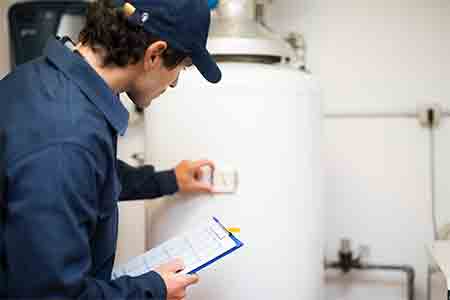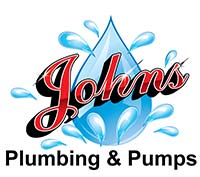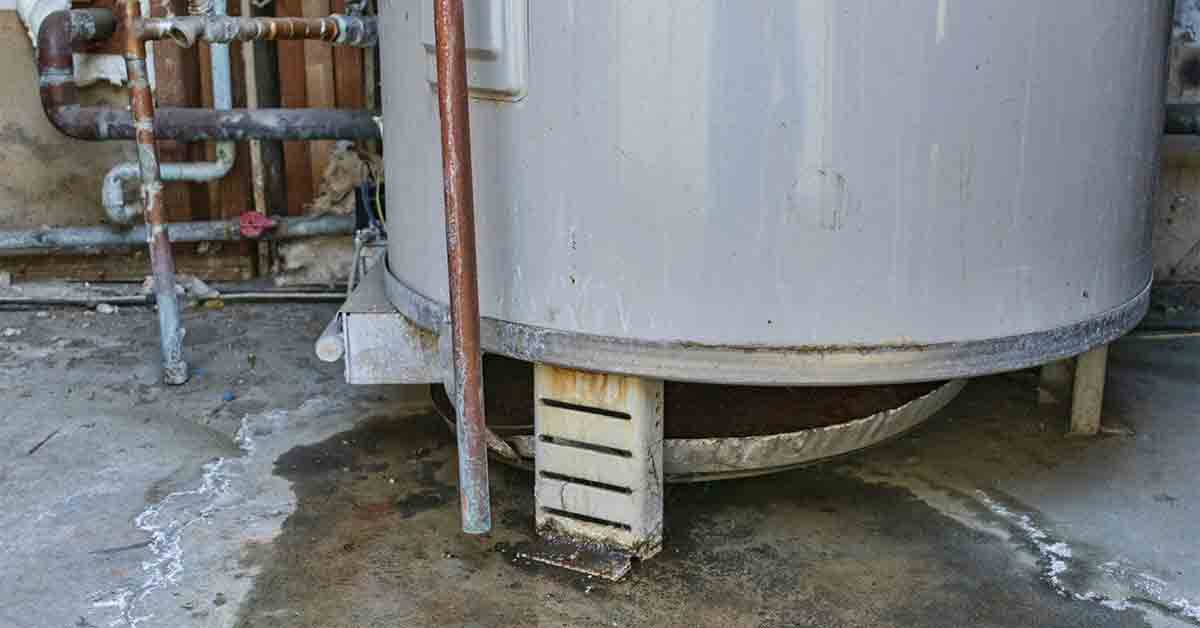Is It Time For a New Water Heater?
As experienced plumbers, we understand the stress homeowners experience when anything goes wrong with their plumbing, especially when they’re not sure what the problem is or how to fix it. A leaky water heater can wreak havoc on your home, damaging the walls and floors. While a small leak may seem like a minor issue, there may be a bigger problem brewing. Here’s a handy guide to help you figure out if it’s time to call a professional plumber, such as one of our highly-trained contractors at John’s Plumbing and Pumps, to repair or replace your water heater.
How To Diagnose Your Leaky Water Heater
If your water heater is leaking, the problem will only get worse. While we recommend calling a professional if you suspect something is going wrong with your water heater, there are a few steps to take to figure out what the problem is and what solution your plumber will likely implement.
1. Determine the Source of the Leak
Just because there’s a puddle of water near the water heater, that doesn’t mean the water heater is leaking. There’s a chance that the leak originates at the furnace drain line, the water softener discharge line, or some other plumbing fixture nearby. Additionally, sometimes a puddle of water may appear due to condensation and isn’t the result of a leak at all.
Dry Up the Puddle
The first step to determine the source of your leak is to dry the puddle. Inspect the water heater and its fittings, as well as other surrounding plumbing fixtures, for apparent leaks. If you don’t find an obvious source of water, check directly above the puddle to ensure the leak isn’t coming from something overhead.
Place Paper Towels Where the Puddle Was
If the leak still isn’t apparent, place some paper towels on the floor after it’s dry. Check back in a few days. If there’s still not any water, you probably don’t have a problem. However, if the leak reappears, the water heater is the likely culprit.
2. Turn Off the Water Heater’s Power
If you’ve figured out that your water heater is leaking, make sure to turn the power off to it. Water and electricity don’t mix!
Gas Water Heaters
If you have a natural gas water heater, the switch is usually near the bottom of the water heater’s tank. Turn the switch to OFF. However, don’t close the gas shut-off valve, if possible. The valve typically wears out over time and is best suited for a professional to handle.
Electric Water Heaters
If you have an electric water heater, find the circuit breaker and switch the breaker to your water heater to the OFF position.
3. Turn Off the Water Supply

If you think you have a problem with your water heater, make sure to contact John’s Plumbing and Pumps to repair or replace it.
If the leak is significant, make sure to turn the water supply off. Locate the cold water shut-off valve. The cold water shut-off valve is usually above the water heater and either a handle or a gate valve. Do not attempt to close the valve if you cannot reach it safely. Call a professional plumber.
4. Determine the Leak’s Exact Location
Here comes the tricky part. There’s no one cause to a water heater leak. Attempting to locate the leak on your own can save time when you hire a professional, but this step is best left to a licensed technician to minimize the risk of damage to both your water heater and home. Additionally, water heaters are pressurized and can contain boiling water, so hiring a professional also mitigates the risk of injury to yourself or your family members.
Check Both Cold Water and Hot Water Connections
Inspect the junction between the inlet and outlet pipes and the water heater. These connections are at the top of the water heater tank. If the leak is coming from either of these inlets (which you should be able to see), the fix may be as simple as tightening a loose connection. However, do not attempt this fix if you cannot reach the pipes safely.
Check the Temperature, Drain, and Pressure Relief Valves
Your water heater has a temperature and pressure relief valve located on either the side or the top of the tank. The valve is a safety device designed to protect you and your home in case the water inside the tank becomes too hot or the pressure becomes too built-up. The valve will release water out of the tank to avoid a dangerous situation, such as a burst water heater. You must leave this step to a licensed professional for your safety.
Check the Internal Tank
If the leak seems to be coming from the bottom of your water heater, it’s likely because of a cracked internal tank. There is no way to fix that, so you’ll have to purchase a new water heater and have it installed by a professional plumber.
5. Have Your Water Heater Repaired or Replaced
The hardest part about a leaky water heater, unless you’ve determined the problem to be an easy fix, is deciding whether to repair or replace it. If you’re unsure, consult a professional plumber and consider their advice. Professional plumbers, such as the top-notch team at John’s Plumbing and Pumps, have seen it all, and they can give you expert advice on what to do about your leaky water heater.
How Can John’s Plumbing & Pumps Help?
As a locally-owned business proudly serving the Olympia area for over 60 years, we dedicate ourselves to excellence. All our hand-picked plumbers and technicians live and work in the area. That means you are our neighbors, and we consider you part of our extended family. That is why we offer some of the best rates in town. All our work comes with upfront cost estimates and open communication about the process.
We encourage people to check out our online reviews. We want you to feel completely confident you have picked the right company for your water heater replacement in Olympia. We know our many satisfied customers have been vocal about receiving a job well done. We are happy they are happy, and we think you will be too!
For water heater repair and replacement, you can count on us for high-quality work at the best price. Call today!

